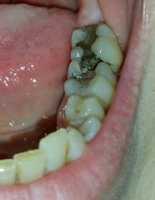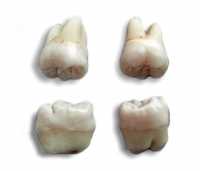MedicalResearch.com Interview with:
Brendan J. Perry, BSc, MBBS
Princess Alexandra Hospital
Brisbane, Queensland, Australia
MedicalResearch: What is the background for this study? What are the main findings?
Dr. Brendan J. Perry: Oral cavity cancer is usually attributed to the “Five S’s” - smoking, spirits (alcohol), spices, syphillis and sharp (or septic) teeth. Cigarettes and alcohol are the most important recognised factors. Spices, such as betel nut, and syphillis are known carcinogens but are not commonly seen in western practice. The role of chronic dental trauma on the mucosa of the mouth to cause cancer has only been examined in a limited number of studies previously and its importance has not been elucidated and has never really affected clinical practice.
This retrospective review examined the position in the oral cavity where cancers occurred with respects to smoking status and other variables over a 10 year period in a major Australian hospital. The edge of the tongue, a site of potential dental trauma, was the most common site affected, accounting for 35% of oral cavity cancers in smokers. However, in lifelong non-smokers without other significant risk factors, 65% of cancers occurred on the edge of the tongue. A significant number also occurred on the buccal mucosa (inner lining of cheek) which is also exposed to dental trauma, but to a much lesser degree than the more mobile tongue. The floor of the mouth and the alveolar ridge (gums) were also common sites of cancer, but tended to occur in an older age group. This is possibly due to irritation caused by the movement of dentures in this age group against these areas of the mouth. In recent years, dentists have been recommending clients to get
removable denture nyc to tackle down on discomfort.
We also found that males had an equal chance of developing oral cavity versus oropharyngeal cancer (255 cases vs 265). However, females are almost twice as likely to develop an oral cavity cancer than an oropharyngeal cancer (135 cases vs 69), and this ratio jumps to 4 times the risk for lifelong non-smoking females (53 vs 12). Although a lot of attention has been given to HPV in causing oropharyngeal cancer, for non-smokers, especially females, it appears that oral cavity cancer is a more common disease, and also that chronic dental trauma may be a significant contributing factor.
(more…)


